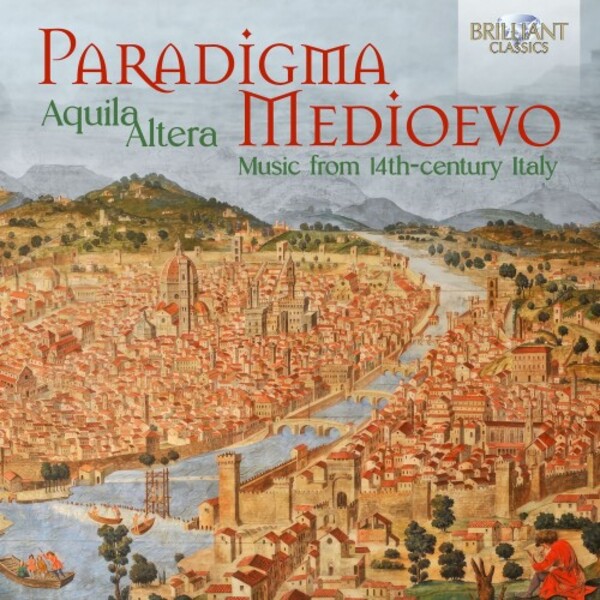
Paradigma Medioevo: Music from 14th-century Italy
£9.45
In stock - available for despatch within 1 working day
Despatch Information
This despatch estimate is based on information from both our own stock and the UK supplier's stock.
If ordering multiple items, we will aim to send everything together so the longest despatch estimate will apply to the complete order.
If you would rather receive certain items more quickly, please place them on a separate order.
If any unexpected delays occur, we will keep you informed of progress via email and not allow other items on the order to be held up.
If you would prefer to receive everything together regardless of any delay, please let us know via email.
Pre-orders will be despatched as close as possible to the release date.
Label: Brilliant Classics
Cat No: 96922
Format: CD
Number of Discs: 1
Release Date: 19th January 2024
Contents
Works
Amor mi fa cantarAquila altera
Chominciamento di gioia
Tre fontane
Dolce speranza d'amoroso foco
Adiu, adiu dous dame
Ecco la primavera
I' priego amor e la vostra biltate
Non creder donna
Ochi dolenti mie, che pur piangete
Questa fanciull' amor
Cacciando per gustar / Ay cinci, ay toppi
Dicovi per certanca
Non voler, donna
Artists
Aquila AlteraWorks
Amor mi fa cantarAquila altera
Chominciamento di gioia
Tre fontane
Dolce speranza d'amoroso foco
Adiu, adiu dous dame
Ecco la primavera
I' priego amor e la vostra biltate
Non creder donna
Ochi dolenti mie, che pur piangete
Questa fanciull' amor
Cacciando per gustar / Ay cinci, ay toppi
Dicovi per certanca
Non voler, donna
Artists
Aquila AlteraAbout
This phase is reflected in such sources as the renowned Squarcialupi Codex. Compiled in Florence around 1415, it contains over 350 compositions (madrigals, ballate and cacce) and is the source of the majority of the tracks on this album. Francesco Landini (c.1325/35– 1397) is represented by five of his 141 ballate and the virelai ‘Adiu, adiu dous dame’. Also from the Codex are one ballata by Andrea da Firenze (c.1350–1415) and two ballate and a caccia by Antonio Zacara da Teramo (1355–1416).
Three instrumental tracks complete the album, two of them from the ‘London’ Manuscript (British Library) compiled in Florence, probably in Medici circles. In addition to mostly polyphonic music by Landini and other Florentine composers, this tome features several anonymous instrumental works including the lively dances ‘Chominciamento di gioia’ and ‘Tre fontane’. The madrigal ‘Aquila altera’ has a different background entirely: the version presented here is the instrumental arrangement found in the Codex Faenza, a unique volume assembled in the early 15th century containing around 50 Italian and French polyphonic compositions for organ.
Error on this page? Let us know here
Need more information on this product? Click here